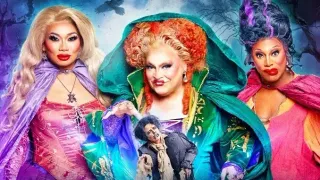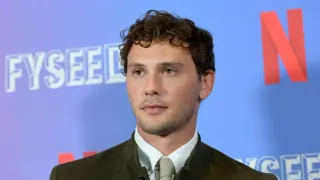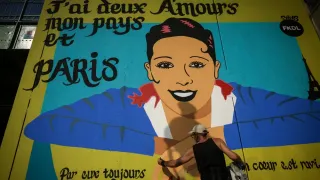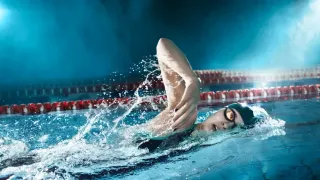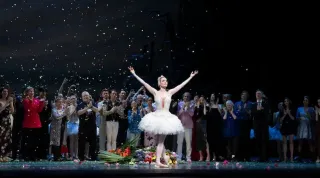April 9, 2017
Bill Kelly Wins Human Dignity Foundation's Community Leadership Award
READ TIME: 4 MIN.
About 14 years ago, I first met William "Bill" Kelly: A friendly, talkative, artsy guy with a passion for making the world a better place, who radiated love for his hubbie Bob and their dog, Jack. We served on the Board of PAWS San Diego (Pets Are Wonderful Support) and our paths crossed again when Kelly started to write his "Think About It" column for The Rage Monthly, taking on older, adult quality of life and affordable housing issues, as well as many other subjects.
We at The Rage Monthly offer congratulations to Kelly for winning San Diego Human Dignity Foundation's (SDHDF) 2017 Richard Geyser Community Leadership Award. But perhaps more importantly, from his perspective, it's about congratulating the innumerable, community advocates who worked to achieve groundbreaking success with him: A 76-unit, LGBT-affirming, affordable senior housing complex, slated to open this December in North Park.
I remember when you first brought up the idea of an LGBT senior housing needs assessment. Was that really ten years ago?
It has been a little over ten years now, and it started when I decided to make my 60th birthday a fundraiser. I wanted to start a fund at the San Diego Human Dignity Foundation, a fund for Senior Care and Senior Issues. We raised $12,000, then the recession hit and there were far more people who needed help. After giving the money out, I just started putting people together-we became an ad-hoc housing committee-I went to Dolores [Jacobs, CEO of the San Diego LGBTQ Center] and she provided a meeting space. We had as many as 33 people at one point, representing various organizations. This went on for the better part of the next seven years, in various forms. Some people dropped away, called to other issues including marriage equality and ending "Don't Ask, Don't Tell." All great causes, but seniors were getting the short stick. It was a lot of heavy lifting by The Center and Community Housing Works, but it took broad community effort.
What advice do you have for the next generation of advocates?
All of us, including myself, think, "This is not going to happen to us," or "I have time to plan for when I get old." Younger generations aren't worrying about the aging crisis, or outlasting their money, or how the high volume of older adults is expected to impact society over the next ten years. But they should get involved; anything they do to help the current generations of seniors will only help them... It's a natural ripple effect.
What would you say was the biggest road block in your volunteer work?
Getting people to actually understand the need. They didn't know there are more people hurting than there are people not hurting. They would say, "They should have saved, they shoulda, shoulda, shoulda..." I remind them we don't all have the same abilities, capabilities, advantages and disadvantages. It was a matter of breaking down judgement in a productive way, be uncomfortable and vulnerable enough to put yourself in someone else's shoes. It is expensive to care for people after the fact, it is both moral and cheaper to help them rise above where they are now.
Some wonderful articles have come out this year highlighting your career from serving in Vietnam to becoming a physician's assistant
in Chicago. How did you end up working at the Cook County Jail? (In the back of my brain I am singing"Cell Block Tango" [from "Chicago"].)
Working at the Cook County Jail is something I didn't plan for. I was studying Urban Renewal in graduate school and two people on a local draft board in a small Midwest community decided my fate. I thought, with my master's degree and knowledge of geography, earth sciences and map reading skills, they might make me an officer. But, because I wore glasses and all officers had to learn to fly planes and navigate, they gave me two choices: Hospital linens or operating room technician, prepping the O.R. for surgery. I chose the latter and did that for four and half years. When I came home, jobs were hard to get for Vietnam Veterans, so I fell back on my medic training and became an EMT and then a physician's assistant... Then I took the job at the Cook County Jail. I was quite bitter at the time. Most of my colleagues were against the war, weren't drafted, continued in college and they had a house and two cars when I got back. But now when I reflect on it, all those things made me who I am.
I am glad you were inducted into the Benjamin F. Dillingham and Bridget Wilson LGBT Veterans Wall of Honor this year.
It's nice to get all the "atta boys," nice to be recognized, but the mission is always more important than me. There are many unsung heroes and they give me faith in the future. My final comment is to forget about pointing fingers or seeing things from your own perspective, that's how people get excluded and get angry and nothing moves forward. We need more people "entering the parade," so to speak. Every person can do a lot more than they think and have a greater impact. One small example: The Caring for our LGBT Seniors in San Diego Facebook page is over 800 people strong, from all over the world. That makes me happiest of all, making a difference... Connection.
[Kelly talks more about the challenges he and Bob faced, as a closeted couple in a half-hour PBS documentary feature: video.kpbs.org/video/2365927954
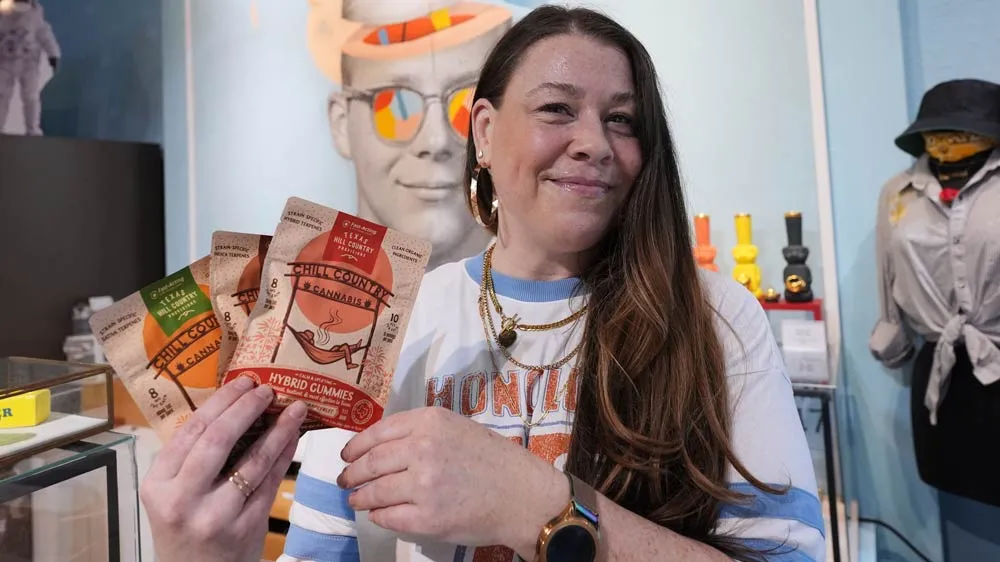
 Copyright Rage Monthly. For more articles from Rage visit
Copyright Rage Monthly. For more articles from Rage visit 
